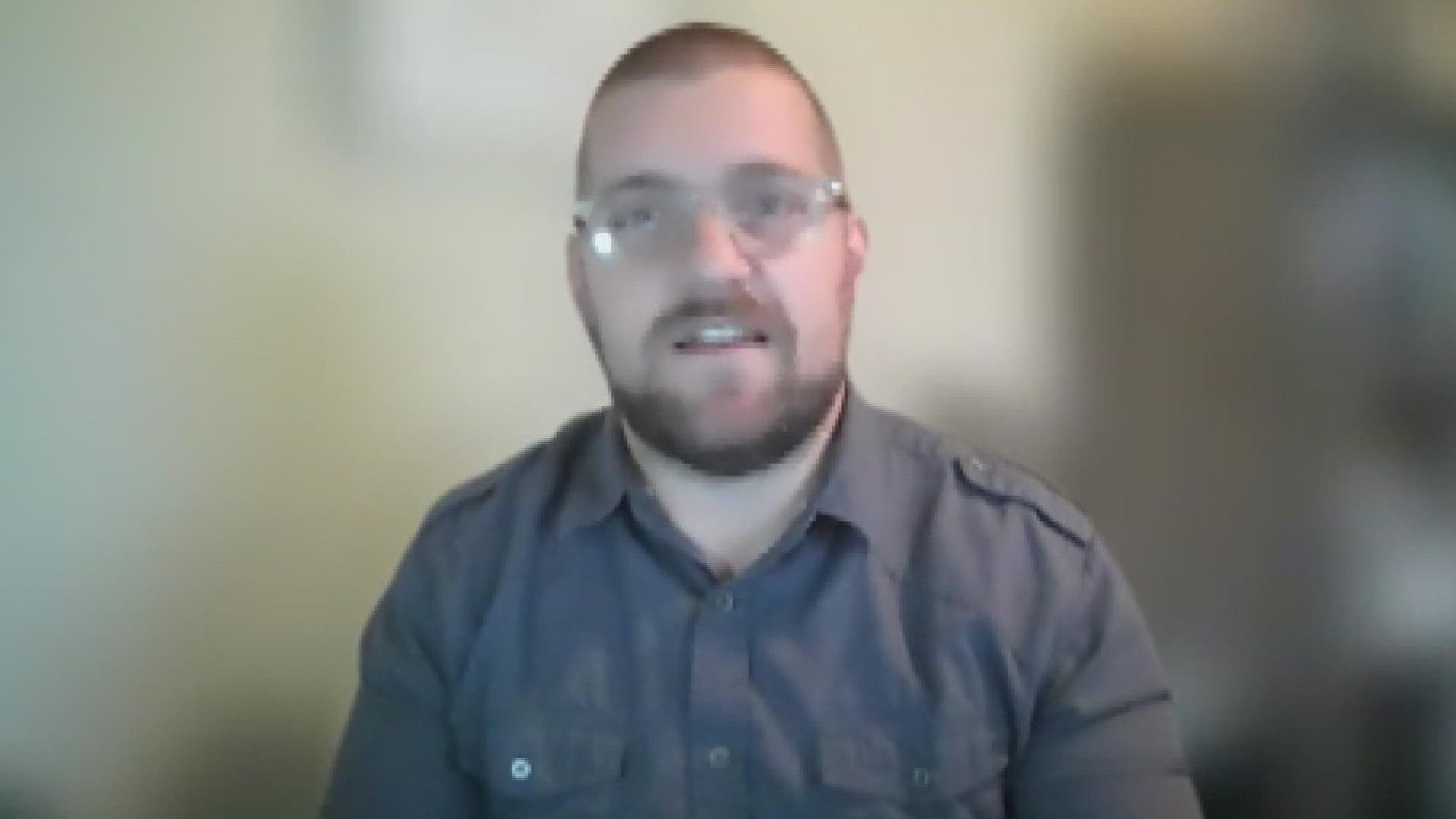INDIANAPOLIS — Dialing three digits can be the difference between life and death. While most people would assume it's 911, this is about 988.
This is the 988 Suicide and Crisis Lifeline, formerly known as the National Suicide Prevention Lifeline. The lifeline ditched the original phone number in 2022. It now goes by an easier-to-remember three-digit number, and it seems to be working.
In fact, new research shows Americans are now remembering — and dialing — the lifeline at eye-opening rates.
From December 2021 to December 2022, calls answered increased by 48%, chats answered went up by 263%, and texts answered went up by 1,445%.
"It's more of a common experience than we may think," said Dr. Shane Kuhlman.
Kuhlman is the chief psychology officer for Centerstone's Research Institute, which is one of the nation's largest community behavioral health organizations.
"We want to make people's lives better," Kuhlman said.
According to Kuhlman, about 1-in-5 people will experience some sort of mental health struggle during their life. That includes men, who Kuhlman says are starting to pay more attention to their own mental health.
"Men's mental health is not any better, or any worse, than women's mental health," said Kuhlman. "When we look at some of the statistics around mental health symptoms that men may experience, these are pretty even, on average, to what women experience."
The problem, however, is society doesn't prepare and equip men to openly address and discuss mental health challenges, according to Kuhlman.
Kuhlman said men are less likely to report symptoms, which can build overtime.
"Expressing those emotions is good," Kuhlman said. "You just might need to work on it a little bit more. Society doesn't teach us how to express emotions as well as it does teach women how to express emotions."
Because of that, Kuhlman said men are more likely to self-medicate during episodes of mental health crisis. Men are also more likely to die by suicide.
Kuhlman said right now in the United States, men have a suicide rate three times higher than women, typically due to proximity to lethal means.
"Women actually attempt suicide four times more than men," Kuhlman said, "but men die by suicide more often. What that tells us is that if they decide they want to die by suicide, they are more likely to do it in that moment."
In response, Kuhlman and Centerstone are working to flip the script on mental health services for men. In fact, new guidance form the American Psychological Association helps organizations better tailor their support services around men and boys, according to Kuhlman.
"It's really approaching treatment differently with men," Kuhlman said.
Often times, just starting the conversation around mental health can be the first step. Kuhlman suggests starting with the question, "Are you OK?"
"I've literally had guys come in and tell me, 'I don't know what this is, this doesn't feel normal for me,'" Kuhlman said. "It may be normal, but it just may not feel normal for you. You may want to learn different ways of how to express that to yourself and how to express that to others."
As the conversation around men's mental health continues to change, Kuhlman hopes Hoosier families will look out for one another and not consider mental health to be a weakness.
"Talk about it as a strength," Kuhlman said, "because it really is a strength to admit some of your vulnerabilities and to be more vulnerable in therapy."
Centerstone offers services like suicide intervention and treatment, lethal means counseling, and even motivational interviewing.
Kuhlman said the interviewing gives men the tools they need to change or improve behaviors on their own.
"They are really thinking about it," Kuhlman said. "But they don't have any plans or preparations or actions yet to change."
For anyone working through mental health challenges, especially after a life event or experience, Kuhlman suggests trying mental health treatment.
"It doesn't mean that you have a mental health disorder," Kuhlman said. "It doesn't mean that you are even experiencing something really severe."
For anyone experiencing a mental health crisis, the 988 lifeline is available 24/7 by call, text or chat.

